Was this spring a quiet season for fiction? We review several first novels, but only a few of the big authors came out to play. And one of those — John Grisham — disappointed with his latest tome, "The Broker," which reads more like an Italian travelogue than the heart-pounding thrillers readers are used to from him.
But some of the new names on the shelf produced works that delighted us. Curtis Sittenfeld's "Prep" conjures up high school memories so fresh it's as if the ink on her yearbook just dried. Despite a silly concept, Dean Bakopoulos’ "Please Don't Come Back from the Moon" reveals a promising new voice. And while Elizabeth Hickey's "The Painted Kiss" bears more than a little resemblance to "Girl with a Pearl Earring," Hickey takes her characters well into old age and brings them effectively off of the canvas.
Mysterious ‘Almond Picker’
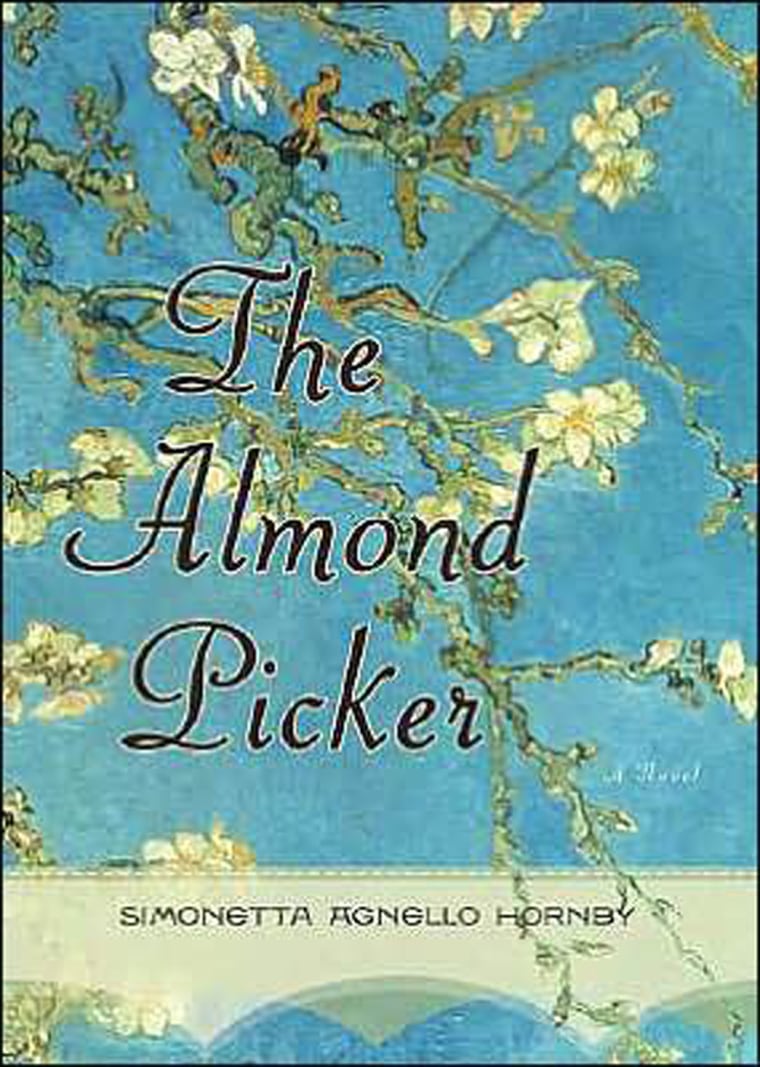
While most mystery stories ask the question, “Who done it?” Simonetta Argnello Hornby’s new novel, “The Almond Picker” (Farrar, Straus and Giroux, $23) asks the question, “Who was she?” The “she” in question is Maria Rosalia Inzerillo, known as Mennulara, who went from humble almond picker to practically running the wealthy Alfallipe family fortune. Yet after her death, no one seems to know how or why she came to have so much power and money. And why, after her death, does she suddenly seem to be making demands from beyond the grave?
The book is a good yarn, told in an old-fashioned almost Dickensian fashion, with colorful characters who seem a little comic in comparison to the dark secrets that comprise our main character’s life. The Alfallipe family is drawn with broad strokes — their main goal is to try and figure out whether Mennulara has left them any money. The commentary on class here is entertaining, as the townspeople are scandalized when the Alfallipe family puts an obituary in the paper for one of their servants. The town becomes a character in the book, as the story of Mennulara is passed from person to person, with each character adding
My problem with the novel is beyond that central mystery, there’s just not much more to the book. While enjoyable, the characters are so broadly drawn that none of them really stay with you. Ultimately, solving the mystery just wasn’t enough to satisfy this reader. —Paige Newman
If it ain’t broke
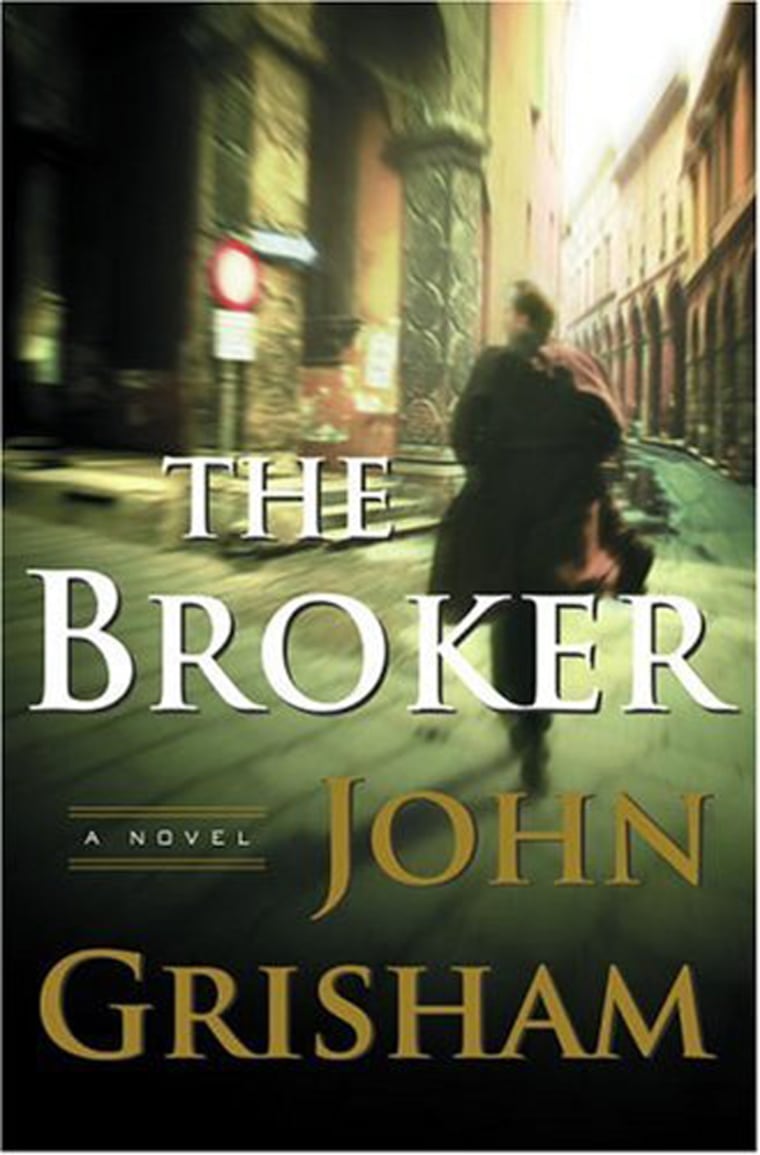
Is there a better author for airplane reading than John Grisham? Have you ever taken a plane trip without seeing half the people in the airport clutching a Grisham tome? I tucked his latest, "The Broker," (Doubleday, $28) in my backpack when I took off on a recent cross-country flight.
Yet despite two long layovers and four flights, I wasn't inspired to finish "The Broker" until all of my other reading material was exhausted. It's not that the book isn't a lively read, Grisham's got the detail and pacing down, as always. But the story meanders in a way that I don't remember ever facing in, say, "The Firm."
"The Broker" is Joel Backman, who's whisked out of jail and off to Italy, where the CIA plans to guard him (but not too well) and wait until another assassin kills him, hoping that will tell them about Backman's secret (a rather dull plot about spy satellites). So now we're in Italy, where surely any minute the chase will begin, right? Well, no, but Italy sure is beautiful. And the food? Delicious! So here we sit, for what seems like a year, while almost nothing in the traditional Grisham worlds of spying and double-crossing and murdering happens. We're still in Italy. (Did you know Bologna was once described as "a bed of asparagus" due to its towers?) Yep, still. Italy.
Even when the plot finally picks itself up (sated, from an Italian coffeehouse table), Grisham feels a bit off-track. We learn a great deal about how Backman and his son keep their e-mail correspondence secret, but readers can be forgiven if, by the end of the book, they're still not really sure what Backman's crime was, and with whom he was involved.
Good airplane reading? Better than most, not as good as Grisham at his best. But if you're flying to Italy, you might be able to use it as a guidebook. —Gael Fashingbauer Cooper
Dismal debut
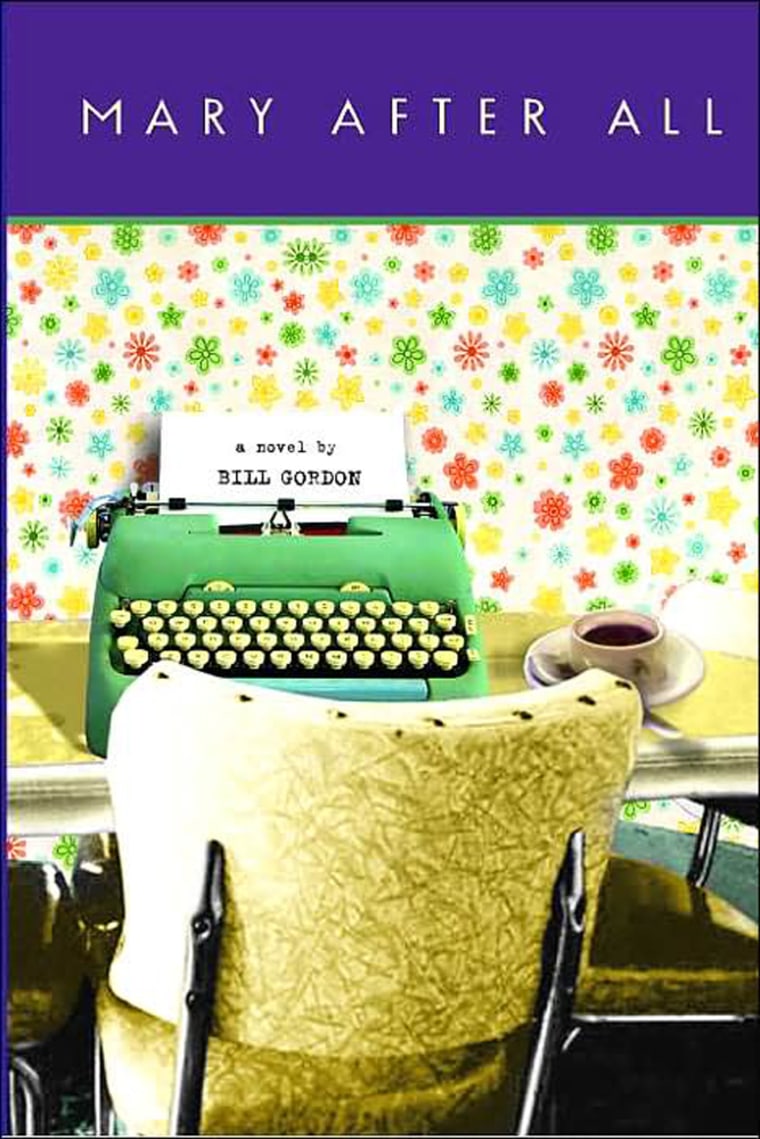
When a debut novel isn’t very good, it’s easy to chalk it up to inexperience. Bill Gordon bites off a pretty big time span in his debut novel, “Mary After All” (The Dial Press, $23), following Mary Nolan through her teenage years, marriage and middle age in Jersey City. That’s a lot of ground to cover in 274 pages.
It’s a tough assignment for a man to sketch a female character convincingly, though many, including Russell Banks, have done it well. I never quite bought Mary Nolan, who constantly seems to be praising her own appearance, including admiring her own legs. I know women who think they’re good looking, but Mary seems strangely vain in a way that doesn’t fit in with her character.
There’s an odd self-conscious writing in the novel, where Mary talks about “skipping ahead” or “getting back” to details. I’m never sure why Gordon does this; it’s distracting and gives the novel a scattered feel.
But what really bothered me about the novel is that Gordon races by what could have been an interesting story. He has a brief chapter where Mary becomes a bookmaker and I love the idea of this collection of Jersey City housewives playing the numbers. That in itself seems like a great basis for a novel, but instead Gordon just lets it drop in favor of the less interesting story of Mary’s marriage.
I just didn’t care enough about Mary Nolan or her life to feel truly engaged in this novel. If the story had been more compelling or focused on something more unique — like the numbers running — I might have been more inclined to enjoy the ride. —P.N.
Little boy lost
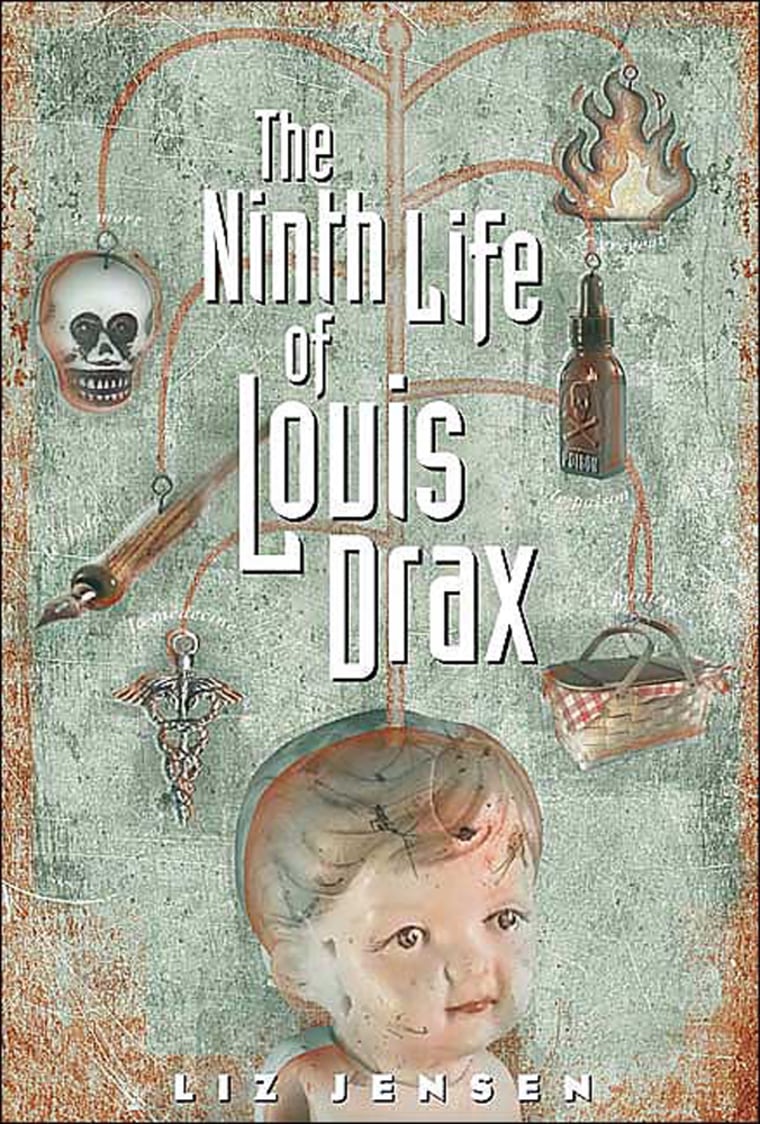
Since the success of “The Lovely Bones,” it seems like voices from beyond the grave are everywhere in our culture — even narrating one of the most popular shows on TV, “Desperate Housewives.” In Liz Jensen’s latest novel, “The Ninth Life of Louis Drax” (Tin House Books/Bloomsbury, $24), little nine-year-old Louis isn't dead; instead he’s in a deep coma as a result of a mysterious cliff fall. Yet, even from that state, he still narrates half the book.
Jensen does a great job of creating Louis and making his point of view seem realistically like a nine-year-old boy. Louis sees his life in the fact-based manner that most kids view theirs. He knows that the kids call him Wacko Boy in school. He knows that he’s considered “highly disturbed.” Yet, these facts aren’t presented melodramatically; instead they’re given to the reader in a child’s straightforward manner. Louis says of pet ownership, “Here’s a secret rule of pet-keeping. If you own a small creature, say a hamster called Mohammed, and he lives for longer than a small rodent’s lifespan, which is two years, then you’re allowed to kill him if you want to, because you’re his owner.”
Louis alternates chapters with Dr. Pascal Dannachet, a coma specialist, who, though married, finds himself drawn to Louis’ mom Natalie. At heart, this is a mystery story: What happened to Louis? Yet, Jensen wisely raises more questions with every step toward the answer. There is a supernatural element to the novel, which could have been distracting, but it seems to work here, in part because Jensen keeps the story fully grounded in character. Like Dr. Dannachet, we too are drawn into Natalie and Louis’ strange world. —P.N.
‘Pearl Earring,’ part two
Did you love "Girl with a Pearl Earring" and wish you could read the same book again, only with just enough changes to make it feel like a different book? If so, you'll adore Elizabeth Hickey's "The Painted Kiss" (Atria, $24).
Tracy Chevalier's "Girl with a Pearl Earring" tells the story of young Griet, introduced to the world of art through painter Johannes Vermeer. Hickey's "The Painted Kiss" tells the story of young Emilie, introduced to the world of art through painter Gustav Klimt. While it's tough to escape the book's similarities, get beyond them, and "Kiss" is hard to put down.
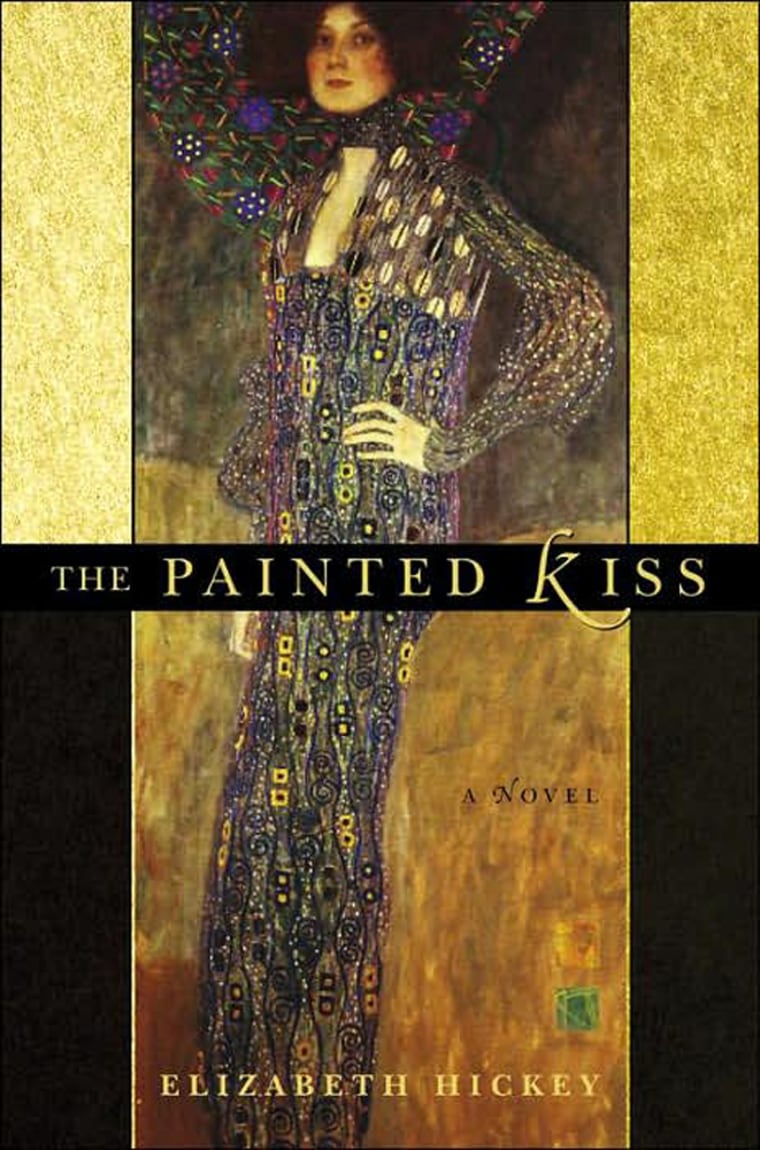
Hickey must have done some incredible research to create her world of 1880s Vienna, and it shows. She knows that a young girl of the time would change from cambric to flannel nightgowns with the season, she knows what such a girl would eat for breakfast (coarse porridge) and that she would bathe her hands in buttermilk to keep them white. Yet the detail never feels superfluous, it's as if we're looking through Emilie's eyes. As an art student and eventual fashion designer, it's natural that she sees in such rich detail and we benefit accordingly.
Unlike with Griet in "Earring," here we get to watch Emilie grow up. In fact, her adult life is almost more interesting than her young days, and her relationship with the great painter twists in and out of her life like ribbons. She becomes a woman and an artist in her own right, and while Klimt's effect on her never fades, she stands alone. A multi-colored, breathtaking read. —G.F.C.
‘Prep’ style
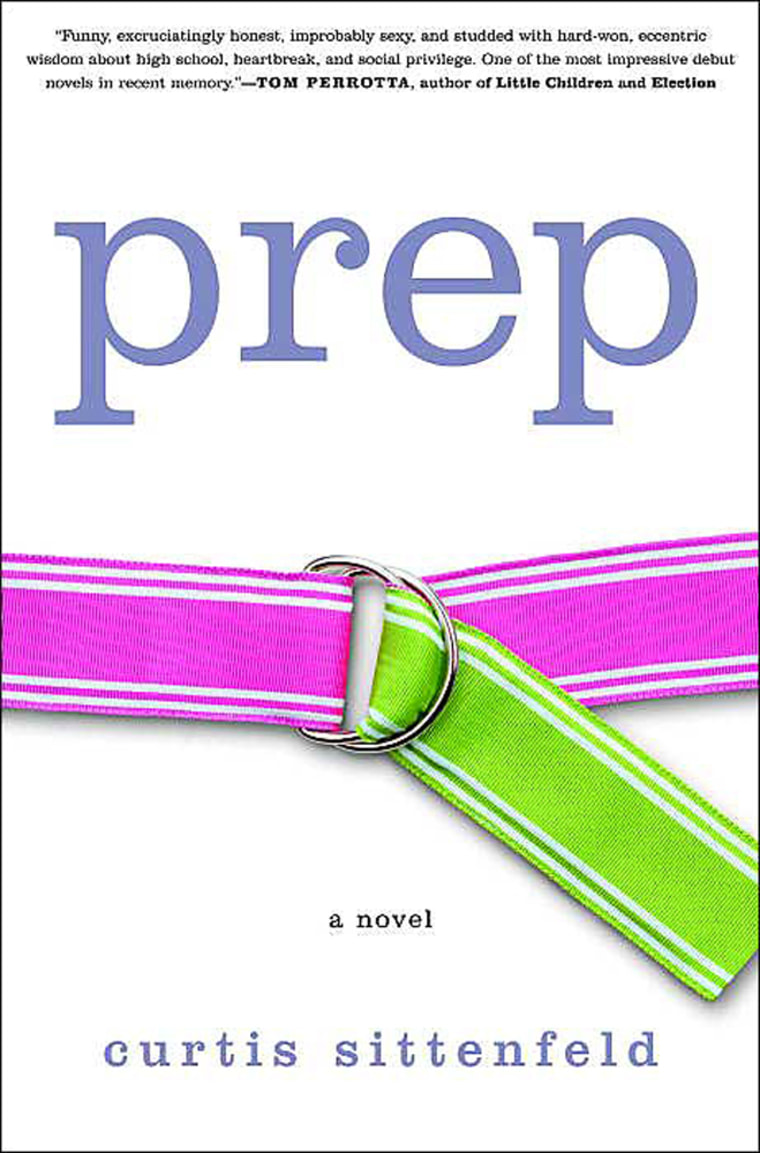
Reviewers keep comparing Curtis Sittenfeld's "Prep" (Random House, $22) to John Knowles' classic "A Separate Peace," but to this fan of school-set novels, it was more reminiscent of Donna Tartt's "A Secret History." In both stories, a student from elsewhere comes East to attend a school of wealthy intellectuals. In both books, our narrator is set a bit apart from his or her classmates, and we watch the foreign world through eyes that are new to it.
In "Prep," our narrator is Lee Fiora, a Midwesterner who breaks with home ties to enroll at Ault, an expensive boarding high school on the East Coast. The eyecatching cover and title suggest we'll be meeting stereotypes out of "The Preppy Handbook," but instead Lee is one of the most realistically drawn high-schoolers in some time. (Not going to mention Holden Caulfield, not going to do it.) Her crush on an older girl, awkward relationship with a popular boy who comes to her room secretly, and her admiration of her accomplished roommate ache with accuracy. Reading some parts of "Prep" are about as close as I ever hope to come to those pains and imaginings unique to high school.
Yet the novel seems to be building and building to an event that never happens. There's a small cheating scandal that doesn't result in the kind of thundering events that occur in Tobias Wolff's "Old School," and various relationships that teeter on the brink, but never completely fall apart. Going to school with Lee is enjoyable and honest, but there's a promise of drama that never delivers. Still, I'd go back to school with Sittenfeld any time, and look forward to this promising new author's future work. —G.F.C.
‘Moon’ is a strong debut
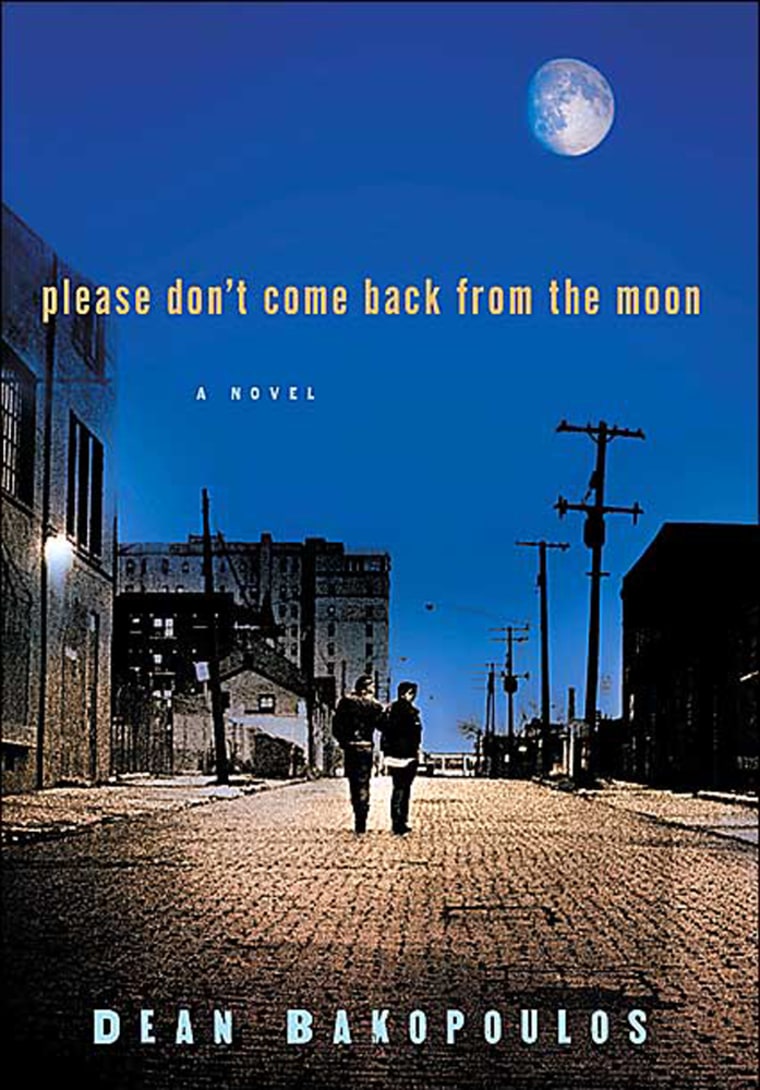
A silly concept can’t keep a good writer down. The proof is in Dean Bakopoulos’ debut novel, “Please Don’t Come Back From the Moon” (Harcourt, $23). The novel starts with the conceit that all the fathers in a working-class Detroit suburb have mysteriously disappeared. Young Michael Smolij, the son of one of the men, believes that his father has gone to the moon.
Bakopoulos hangs onto this conceit for the first part of the novel, following Michael’s progress as one of the many kids in town who no longer has a father. Through what the reader learns about the town — the story sticks to current events and readers get to see the town change as we move from Bush I era to Clinton to Bush II — it’s clear that the fathers have left because of the economic oblivion the town has fallen into. Yet, I couldn’t figure out why this issue had to be presented in such a mystical fashion. The fathers don’t just hit the road here, they literally disappear. Even once the Internet age comes into the story, the boys — now men — still can’t find them. Why make it that mysterious? Why not just have economic crisis drive those dads away? If Bakopoulos was trying to graft something other-worldy onto the novel, it didn't work.
All of which is not to say this novel – and particularly this writer — doesn’t have its strengths. Once Bakopoulos lets the vanished fathers fade into the background and focuses on Michael’s story, the novel picks up steam. The characters are all strongly written here. Michael, a smart kid who likes getting into trouble, doesn’t see much of a future and tends to spend his days getting stoned with his cousin Nick at the local mall. It’s refreshing to get a truly blue-collar story and to see that setting reflected in the characters’ dreams and actions. Let’s hope next time, Bakopoulos leaves the gimmicks on the shelf. —P.N.
A day in the life
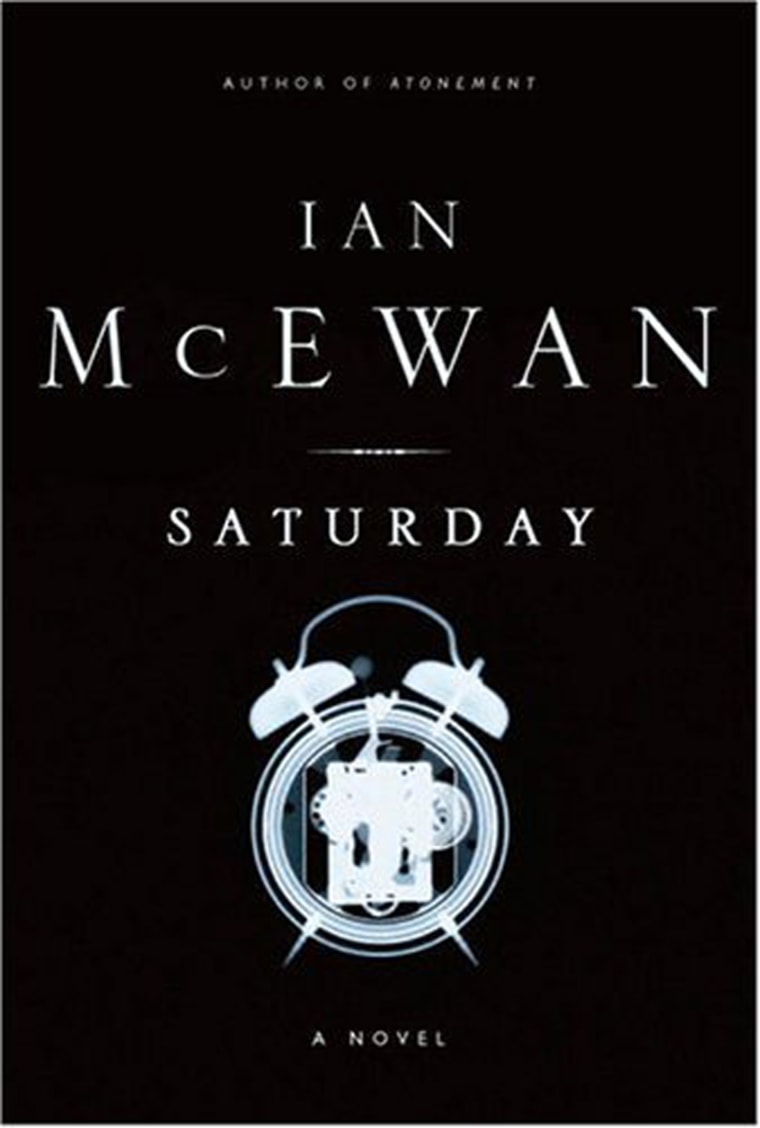
How does Ian McEwan follow up a successful and beloved novel like “Atonement”? He enters Virginia Woolf territory and sets a whole novel to take place in one day. The result, “Saturday” (Doubleday, $26), is well-crafted, engaging and surprising — better known as your basic Ian McEwan novel.
The novel tells the story of successful neurosurgeon Henry Perowne and the day in question involves: getting up, going to a squash game, picking up groceries and having dinner with his family. That may not sound like the stuff of engrossing fiction, but oddly enough it is. Set in London just before the U.S. invaded Iraq, the novel is one of the better to deal with the post-9/11 anxiety — that feeling of helplessness, that anyone could attack, anywhere.
It’s rather amazing how good McEwan is at developing character. Even though we never leave this 24-hour period, the characters are able to show different sides. Perowne is even complicated in his response to the impending invasion. Depending on who he’s talking to, his opinion about whether the U.S. should invade Iraq changes — he weighs what an Iraqi patient has told him about Saddam against his mixed feelings about America’s boldness. Though this is a story about upper-middle class people, it has none of the smirking “see how silly these people are” attitude that books these days seem to revel in. These characters are real.
Perowne’s children —Theo, an aspiring blues musician, and Daisy, a poet — are everything Perowne’s precise neurosurgeon doesn’t quite understand about the world as well as the vehicle that gives him a glimpse into their beautiful and less ordered worlds of art. Perowne’s relationship with his wife Rosalind, is one of the more genuinely loving you’ll encounter in fiction. It’s a satisfying novel and one that I did read in one Saturday. —P.N.
‘Grace’ indeed
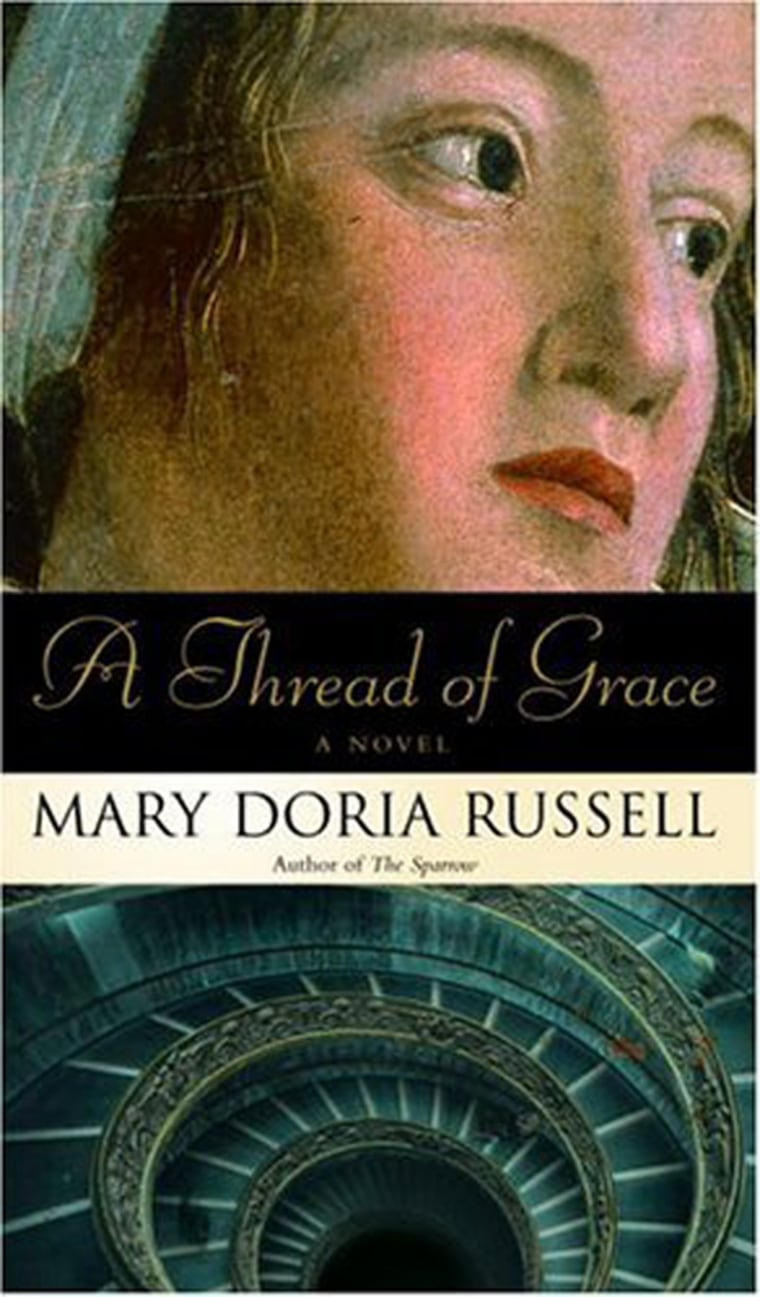
Thoughtful, engrossing and moving are just a few of the words that come to mind when I think about Mary Doria Russell’s latest book, “A Thread of Grace” (Random House, $26). This historical novel tells the story of Jews during World War II who find refuge in the small towns of Northern Italy. The book gives you a piece of World War II history in a completely human way, without a hint of preachiness or that awful “read this for your own good” feeling that some historical novels possess.
The reason for the book’s success is that it stays fully grounded in character. From Renzo Leoni, a Jewish Italian war veteran who believes he has nothing left to lose, to young Claudette Blum, a Jewish refugee who scales the Alps to escape the Nazis — all the characters are compelling. Russell throws a lot of people at us, but she keeps them so particular and distinctive that the reader doesn’t get lost. I cared about the outcome for each character and loved how Russell manages to let the story unfold in a very natural way, so that what happens to the characters never feels telegraphed. Instead, it’s just natural and human — above all, human.
The other aspect that is executed so well here is the way that Russell brings us back in time. She recreates the World War II era without a hint of melodrama and with a much needed dose of humor. Russell avoids the stock Nazi clichés, and when images like the Jews on death-camp trains do come into the story, they come in such a wrenching and real way that it’s like encountering those images for the first time. —P.N.
Gael Fashingbauer Cooper is MSNBC.com's Books Editor. Paige Newman is MSNBC.com's Movies Editor.